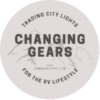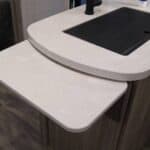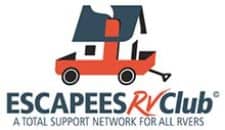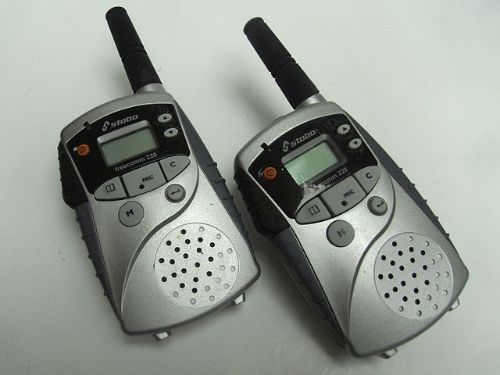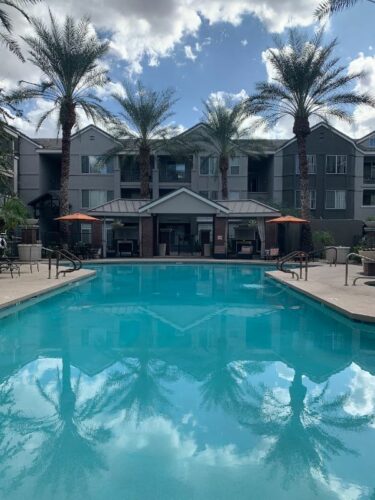Most people have a checklist they follow when determining the gear they need for a camping trip. I have also fallen victim to a quick Google search and noting all the recommended items. However, you quickly realize that you don’t need all the recommended items. Often, it is just marketing to push specific gear.
According to Forbes, millions of Americans are camping each year, with stats showing that 20% of all Americans went camping in 2021. While this could be due to Covid-19, many gear manufacturers are counting on new campers to push their gear. To be honest, I also fell victim to buying new gear and found out that some of it, I rarely use.
Instead of creating another checklist for you to follow, I want to share some gear in my arsenal I never use. The goal is to save you from overspending and reduce that $5,000 spending bill for new gear as much as possible!
11 CAMPING ITEMS THAT TURNED OUT BEING USELESS
Useless might be a bit harsh, but some of the camping items I have in my lock-up have been on one or maybe two camping trips, and now they are gathering dust. Many might consider this a waste of money, which is why the term useless seems appropriate. To specify which items, here are some of the items, you should avoid buying when camping.
1. Machete or Axe

Every survival expert or guide on television might have a machete. While this serves a purpose for survival, campers don’t need to chop through thick vegetation to reach their desired camping location. For the most part, you will be guided to a clear camping location on your trip, and everything should already be in place.
Now, you might argue that chopping wood is important, but are you really going to spend the time chopping down trees at your camping location? First of all, chopping down trees is not permitted and most campgrounds have restrictions. Secondly, it is much easier to arrive at your destination with chopped wood for making a fire.
2. Survival Knife

Let’s get a bit controversial, but do you need a large knife by your side when camping? What are you going to cut with it? Are you going to use the same knife for eating and sculpting ornaments from wood? The answer to all these questions is a resounding NO. Having a knife is always useful, but survival knives with a size of 6-12 inches seem a bit over the top unless you believe you can fight a bear.
Many people see experts carrying these knives on television, which makes them believe they need one of these knives. A simple multi-tool with a smaller blade and a more compact design should get the job done.
3. Marshmallow Toaster
Yes, you can buy a marshmallow toaster, and while I don’t personally have one, I have seen people take them on camping trips. The big question is WHY??? A marshmallow toaster is only good for toasting marshmallows, but my open fire does a pretty handy job at cooking them as well. A simple stick is all you need, and you can effectively roast your marshmallows.
Once you have a basic stick that you can pickup and even wash if you don’t believe the fire will kill the bacteria, it is just a process of sticking the marshmallow on the stick and roasting it on the fire.
4. Advanced Hiking Gear (Walking Sticks, Expensive Backpacks, Etc)

Hiking is one of the big things you can do to have fun while camping. However, you are not spending excessive hours hiking and leaving your camping location for all the access. Yes, hiking gear makes a big difference, but walking sticks? Why not pick up a stick if you need the support for your 1-mile journey around the campsite.
Backpacks can be debated, but keep in mind that you are CAMPING and not backpacking. The definition of camping means you are in one location. You will not have to carry your clothes around all the time. If you are camping in a group, you don’t want to be the only one with a backpack, unless you have the girth to carry everyone’s mobile phone, wallet, and keys
5. Boombox With Music

When I was younger, I enjoyed making a camping trip into a big party with friends. Having the speakers at full blast can spruce up the time next to the campfire, but do you want to disturb the peace. Other campers might enjoy the tranquility. Fortunately, many camping sites have rules when it comes to noise and how much noise you are permitted to make.
Many camping sites have quiet hours between 9:00 pm and 7:00 am, which renders the boombox useless for late-night parties.
6. Overly Expensive Hiking Boots

Unless you are facing extreme conditions or planning a backpacking trip, I have found that the most marketed hiking boots are not the best choice. Yes, you have insane protection for your feet, but most hiking routes around camping trails are for beginners. You won’t be trekking through extreme areas, and you don’t need a $200 boot.
A basic hiking shoe or even sneakers has done the job for me. You want to be comfortable while making sure your shoes are versatile for other activities. Finding a versatile shoe for hiking is easy and you can get away with spending less than $100.
7. A Comprehensive Medical Kit

Don’t get me wrong, a good medical kit is always crucial. According to the Washington Post, around 120 – 140 campers die each year in national parks from various incidents, but compared to millions that go camping, the percentage is small. Having a good medical kit has saved me a few times from infection, but do you need a “Snake Venom Extractor kit?”
Snakebites are serious business, but having contact with the outside world means you can have a medical professional on the scene rapidly. A helicopter could evacuate you to the closest hospital and deal with the snakebite. I would stand by having traditional medical equipment in a small and portable kit, plus other critical safety items for camping.
8. Full Dining Kit

On my first camping trip without my parents, dealing with food and dining was something I wondered about. Many survival experts eat from the grill, but camping is different, and you can create unique meals with basic ingredients. Packing numerous pots and pans seems like a great way to cover all your basis.
However, you rarely need all the equipment in your kitchen. A few plates, one or two pots, and a baking tray should get the job done. The same goes for cutlery. You won’t be making a 5-course meal when camping. Turning back to a useful multi-tool, it should get most things done. However, the “SPORK” is also a useful addition.
9. Kitchen Or Drinking Glasses
We all need something to pour our favorite beverages into and help us enjoy them. However, glass is not something worth taking. Many plastic cups can do the trick, and should they fall, you can pick them up. If you take one glass, and it breaks, you are screwed for the rest of the trip. It is best to stick with a few plastic or metal cups to ensure you always have something to drink with. Modern glass bottles can take up to 4000 years to decompose, which damages the environment.
10. Firearms

Firearms are legal to carry in parts of the United States, and many people take them camping. While I don’t see the need to carry one when camping, you can certainly understand the motivation some people might have.
Unfortunately, you will not have to use a firearm. Most camping sites are safe and often have guards. You are not allowed to randomly hunt, which mean you don’t need a firearm. Additionally, it is often a liability, and you need to keep it secure and safe from your kids. Carrying a gun can also make you a target for theft. According to some experts, a gun is stolen every 90 seconds in the US, and you don’t want to be a part of this.
11. The Best And Most Expensive Tent

Don’t get me wrong, there are some exceptional tents out there, many of whom come at exorbitant prices, with features you think you might need. Safety nets, electrical supply chords, and even solar panels are not uncommon for some of the most luxurious tents. However, you can buy many smaller and more useful items.
I prefer a basic tent for the right number of people, or to have each person or couple bring their own tent. You can pick up an affordable tent from Cabelas or REI and use some of the money you save for a solar kit that is more affordable to keep your devices powered.
Some camping sites have limited usable space and they have electrical connections installed. A standard tent should do the trick and you only need to spend an extra $15 to make use of the electrical outlet, and sometimes, it is even cheaper.
WRAP-UP
I can attest to having made numerous of these camping mistakes throughout my life. Having learned from my mistakes, I hope that these tips will help you. The thing about camping is to keep it simple. The more exorbitant you go, the more expensive it becomes and the more work you have to do. You want a smooth and quick setup to give you more time to relax.
I would love to see which gear items you have taken camping that turned out utterly useless in the comment section. Let me know what you regret bringing along!
I have had the fortune of growing up in a camping-obsessed family. Since the age of 5, I have been fortunate enough to go camping on an annual basis. With my experience of great camping trips and a few I wish I never went on, my experience can help you avoid the same mishaps I had to endure!
-
Jean Whiteheadhttps://changingears.com/author/jean-whitehead/
